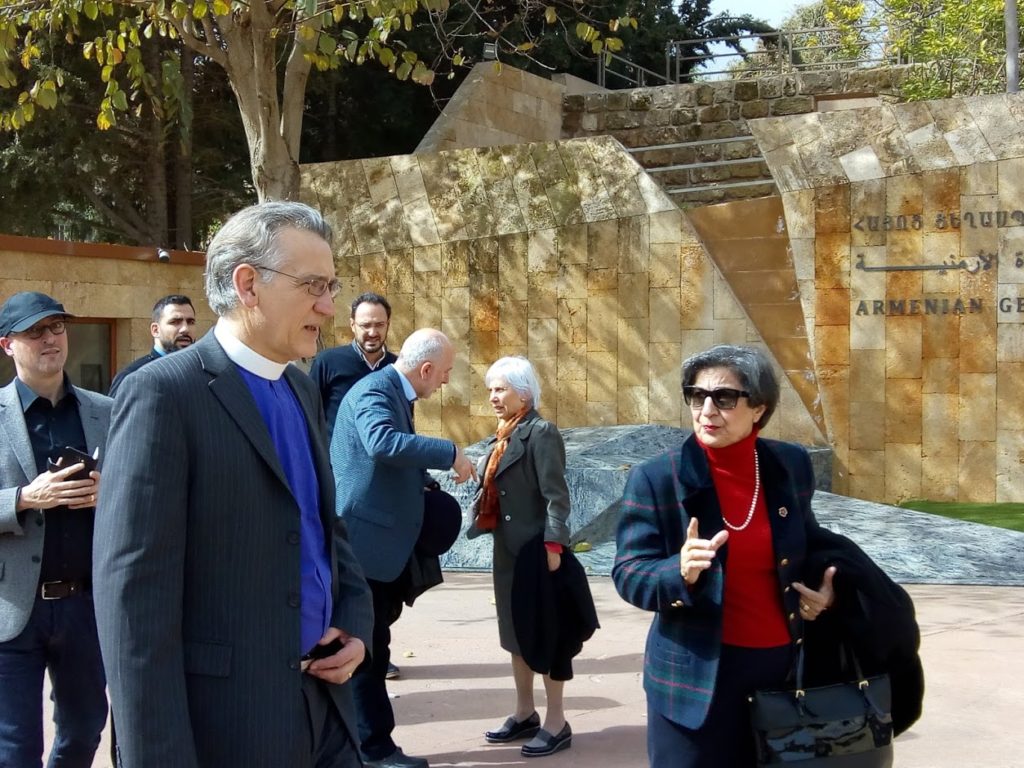From 14th to 18th February, a first round of talks took place in Beirut between representatives of the Armenian Apostolic Church and the Old Catholic Churches of the Utrecht Union. The Armenian Apostolic Church is one of the churches that, since the middle of the fifth century, has followed a different route to that taken by the Orthodox Churches (to the east) and the Catholic Church (to the west). It is a church which today is particularly active in the ecumenical world. For this reason, the International Old Catholic Bishops’ Conference decided to form a joint mixed working group on socio-cultural and ethical issues. The aim would be to get to know each other better by reflecting together on some of the challenges facing churches due to changes in society, such as, the role of women in church and society (ordination), consideration of same-sex relations (acceptance and blessings) and the end-of-life (euthanasia, etc.).
The Old Catholic Church was represented in the joint working group by Bishop Dr Harald Rein (Switzerland), co-chair, Professors Dr Andreas Krebs (Bonn) and Dr Peter-Ben Smit (Utrecht). Dr Abel Manoukian (Secretary of the Swiss Council of Religions) was present in a consultative capacity. The Armenian Apostolic Church representatives on the working group were: Bishop Shahe Panossian, Primate/Archbishop of Lebanon; the Ecumenical Officer, the Very Revd Fr Hrant Tahanian; Seminary Director, the Very Revd Fr Boghos Tinkjian; Ms Teny Pirri-Simonian, delegate of the Armenian Apostolic Church at the WCC in Geneva, and co-chair; Ms Seta Khedeshian, chair of various social organisations of the Armenian Apostolic Church in Lebanon; and Ms Araz Kojayan, specialist in the field of gender and family issues. His Holiness, the Catholicos of Cilicia, Aram I, also participated at some of the meetings.
The two delegations met in Antelias, a suburb of Beirut in Lebanon, as the Armenian Apostolic Church is largely located outside Armenia. Of the approximately 8 million members, 4-5 million have lived in the diaspora ever since the systematic persecution of Armenians in the Ottoman Empire and in the Turkish state (from the end of the 19th century). This situation gives rise to particular challenges, for example, questions that arise, say, among Armenians living in the United States, do not arise, or appear in a different form, among Armenians in the Republic of Armenia or the Middle East. At the same time, though, the Armenian Apostolic Church has played, and still plays, an important role in the preservation of Armenian culture whereby ethnic identity and religious identity are almost completely identical everywhere.
This first meeting focused on the position of women in the church and in society and on issues of same-sex relationships. This led to some good conversations in a very open atmosphere, often yielding very surprising insights, such as the immense value that the Armenian Apostolic Church places on having a diaconate that is open to both women and men on a completely equal basis. There was plenty of space for raising questions in a broader context; and for developing an awareness that in areas such as the ordination of women and the blessing of same-sex partnerships, these do not of themselves solve all the problems of discrimination, but they do give out an important signal. It is expected that the topic of gender roles in society and the church will also be discussed in a broader debate at the next meeting.
Peter-Ben Smit

